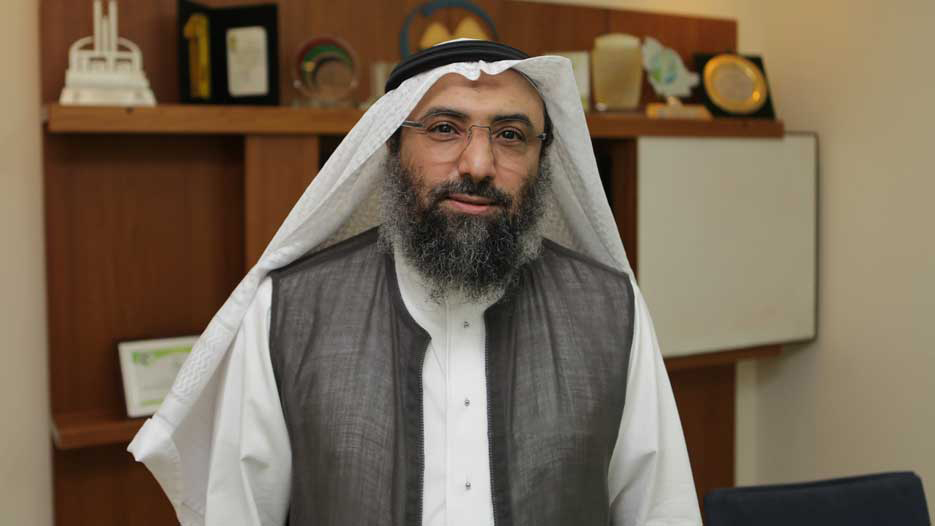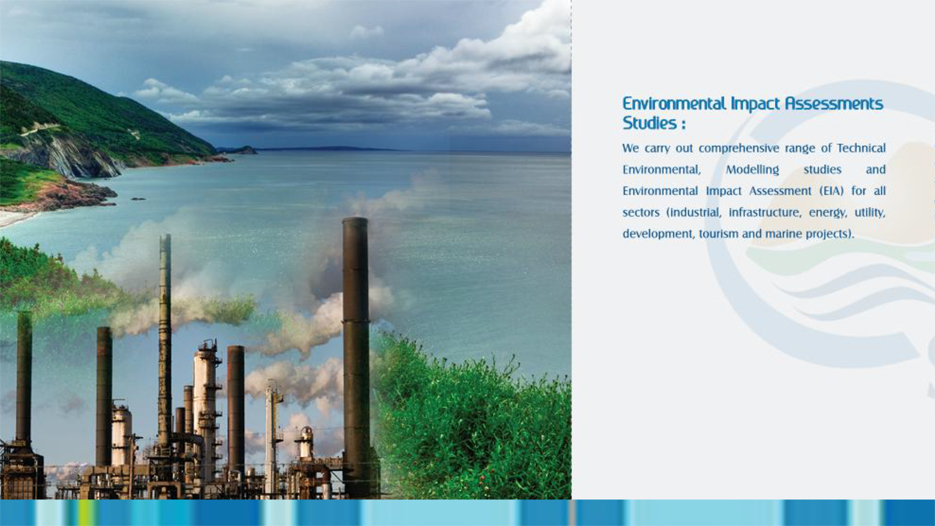Environmental Awareness has Improved but Implementation of Regulations still Weak
In 2006, I brought a solution to Jeddah Municipality – where they produce 7,000 tons of waste per day – and said we’re going to generate electricity and power from that waste. And now, we’re still in negotiations with other authorities to approve this innovation. It takes time, especially talking about mega projects that cost $500 million. We’ll give solutions and generate waste into 100 megawatts can easily give electricity to almost 10,000 households (depending on how big the house is). It’s amazing and good, but it still takes time and investment.
Interview with Dr. Fadil Fouad Basyyoni, President of SAES

What is the degree of environmental awareness in the Kingdom, and how sophisticated are the renewables and environmental awareness protection?
Awareness in the Kingdom differentiates between different levels of industry, if you’re talking about awareness with the public, then we are far behind; if you’re talking about awareness with the commercial industries, we need a lot of work. Awareness within the government sectors and decision-makers, now, Saudi Arabia made new regulations, for the environment especially, but the implementation of regulations is still weak. Therefore, we need a lot of enforcement to implement this regulation. It depends on what kind of environmental field you’re talking about – waste disposal is far behind, as technology hasn’t been implemented to generate energy from the waste, or make landfill waste less. There is enforcement of some laws, but regulation isn’t there yet. However, it’s much better than fives years ago – awareness has increased 100%, but we still have a lot of things to do throughout the Kingdom.
From your experience, how do individual companies in Saudi Arabia approach corporate social responsibility and environmental sustainability? Are companies adapting?
Some of the big companies started having social responsibility, which are required by the new laws. Social awareness for the environment, and some of the big banks are doing this, and one bank asked us how to build a completely ‘green building’ for their new branch – waste recycling, reusing water, and building design. The big companies are getting involved and want to have more environmentally friendly programs. Some of the authorities, like the Chamber of Commerce, invested in Oracle systems to use less paper and use email instead of faxes. The awareness here is getting better and improving, and they will be leading other awareness programs in the future. The public will see those efforts happening, and then follow.
What do you think should be done to improve environmental sustainability from the regulatory standpoint?
We have the regulations, but they need to be updated in certain sectors, like waste and energy, or enforced in a better way. Updating regulations is number one, and enforcing the regulations is number two. We should not let big companies give excuses in doing things their own way, and enforce them through the regulations systems. We still don’t have an Environmental Ministry, although we have authority. There was a discussion in Shura about having an Environmental Ministry that would have all of the environmental authority. I believe in this, especially with our population, all the factories we have, and the position of the Kingdom leading this region. Smaller countries than us have environmental ministries, like Oman and Qatar, and they are much more advanced than us because they have these ministries.
We have some projects in Qatar with the Environmental Ministry, and they have a target that they enforce and want to achieve in 2030 for environmental quality, and all other ministries are following that strategy for the whole country. We do have authority in Saudi Arabia, they’re doing a good job, but they need to have more power for regulations and enforcement. They can’t get that power if they’re not their own ministry – so they can use this power toward other ministries. We should also have better communications between the different sectors and ministers in Saudi Arabia. Since we have some ministries are more powerful than others, Health and Architecture for example, and the environmental aspect is weak, we have to make it so that if a ministry for the environment were created then ministers would be able to talk head-to-head. I think we’re weak in enforcing environmental strategies and long-run solutions in Saudi, and I hope that this is a recommendation addressed to King Salman. It will take us time to establish an independent ministry to enforce its solutions throughout the Kingdom.
How do you see innovation or new technology changing Saudi Arabia? Do you see it evolving into an alternative–based economy?
Usually innovations in the Arab world take time; change or adaptation is not that easy. When you bring a new solution, you have to invest a lot of time, money, and education. In 2006, I brought a solution to Jeddah Municipality – where they produce 7,000 tons of waste per day – and said we’re going to generate electricity and power from that waste. And now, we’re still in negotiations with other authorities to approve this innovation. It takes time, especially talking about mega projects that cost $500 million. We’ll give solutions and generate waste into 100 megawatts can easily give electricity to almost 10,000 households (depending on how big the house is). It’s amazing and good, but it still takes time and investment.
What are small-scale projects like?
Small-scale projects from $10-50 million are easier to adapt and implement with the authorities because the budget is available. Usually, the problem with the government authorities is the budget. In Mecca, we’re giving unique solutions to the municipality for all the tunnels – it has the most number of road tunnels in one city – and these tunnels were built a long time ago, and the traffic system inside the tunnels lack some safety standards too. The mayor of Mecca decided to remodel and adapt these tunnels to international standards. We did the studies, and found that in order to update the tunnels it will cost more money than creating new tunnels. Of course, this will take too much time with the government to allocate the budget. But, there is an important need for this, to make these tunnels safer. We invented new things that were specialized for Mecca tunnels, which is the only place where you have cars and pedestrians on the same road inside the tunnel. We have to build something that fits within our system, culture, geography, and needs. You can adapt these smaller projects much easier than mega projects.
How do you identify key market opportunities? How do you approach the international dimension with best practices, and exchanging know-how and technology?
For us, and Saudi ASMA, we want to be a pioneer in offering specific environmental services. Now, most of the big companies that are doing big projects in Saudi Arabia (especially in the royal commissions) come to us in order to do the environmental impact assessment because of our standards and quality of studies. Also, most of the big, foreigner companies don’t have offices in Saudi Arabia and want us to partner and do work together. We want to be unique with our services, not only normal or regular service. In 2013, we were given an award by Turki bin Nasser, who was then the president of meteorology and environment (PME) for being the ‘Number 1’ environmental protection company in the Gulf area. I think we are not running for normal services, instead, we’re focusing on very specific for educated people within certain governmental services.

What are the environmental technologies that you think the Kingdom needs to improve the existing infrastructure?
I think that the Kingdom needs to link all the environmental monitoring in one station. Right now, all the different environmental companies have their own system: Ambient Air, Aramco, SABIC, and Royal Commission – but each system is individual. All these systems have to be linked to one control unit or center so we can manage and see the cost and emissions in all the regions of the whole Kingdom. If everything is linked, then the authority (PME or a future Environmental Ministry) can make better strategies for pollution control. Right now, pollution control is not covered kingdom-wide; it depends on regions, sectors, or industrial cities. The kingdom is big, but it’s easier to control nowadays with available technology; for example, our sister company is doing this in Malaysia, and environmental data (industrial, water quality, etc.) from all across Malaysia is seen and managed from one control room. I hope that this is something that can happen in Saudi Arabia, but we need decision makers to make this happen.
Could you talk about your products, technologies, and what you’re offering to the market? How are you transforming the Kingdom to a better place?
We have our own technologies and solutions for environmental issues. We provide waste to energy, which is something really important for the Kingdom; especially with all of the oil reserves and refineries we need something to replace using this oil for energy. In the near future, because of the expansion of Saudi Arabia, we will be using all of the oil for our energy needs. We are providing different, environmentally friendly solutions for energy. Saudi Arabia makes more than 10 million tons of municipal solid waste (MSW) per year, which can easily give energy to households and reduce or replace oil for energy.
We’re also providing technology for cleaner air in hospital intensive care units (ICUs) because most of the air conditioning systems that hospitals use worldwide, and in the Gulf region, are duct units. This means that you’re transferring air from one unit to another unit, and patients can get infected with bacteria from the air. We have a patent with our sister company in Malaysia for a different type of filter for the same, existing duct system that filter out bacteria from the air to make sure infections don’t spread to different rooms.
We have another patent for tunnels, after we did our study in Mecca looking at the condition of the tunnels. We created filters to filter out the high exhaust levels from cars and dust from the air for people in the tunnels. And, of course, we design ‘green buildings’ as well, and we also offer our services for air pollution and water quality monitoring. We have the first lab in the kingdom, and we run and manage it in Medina. We have our own labs, services, and technologies, which create and invent, so when we go to the clients, we give them a total solution – not off-shelf solutions. We tailor everything to fit the needs of the clients, and I think we’re very reasonably priced in the market, and, as a result, we have small and big contracts for the government and private sectors.
What is the total value of the projects you’re involved with? How many people work for the company?
I’m the chairman for a group of companies: Saudi Asma Environmental Solutions (SAES), Dr. Fadil Basyyoni Consultancy Firm (DFBC), AlTamayiz Environmental Services, and Green Energy Technology Middle East (GETMU). Each one of these companies has projects, and the total value is more than $300 million per year with 500 employees. We established another environmental company in Qatar in 2014, where we have a big contract of about $50 million.